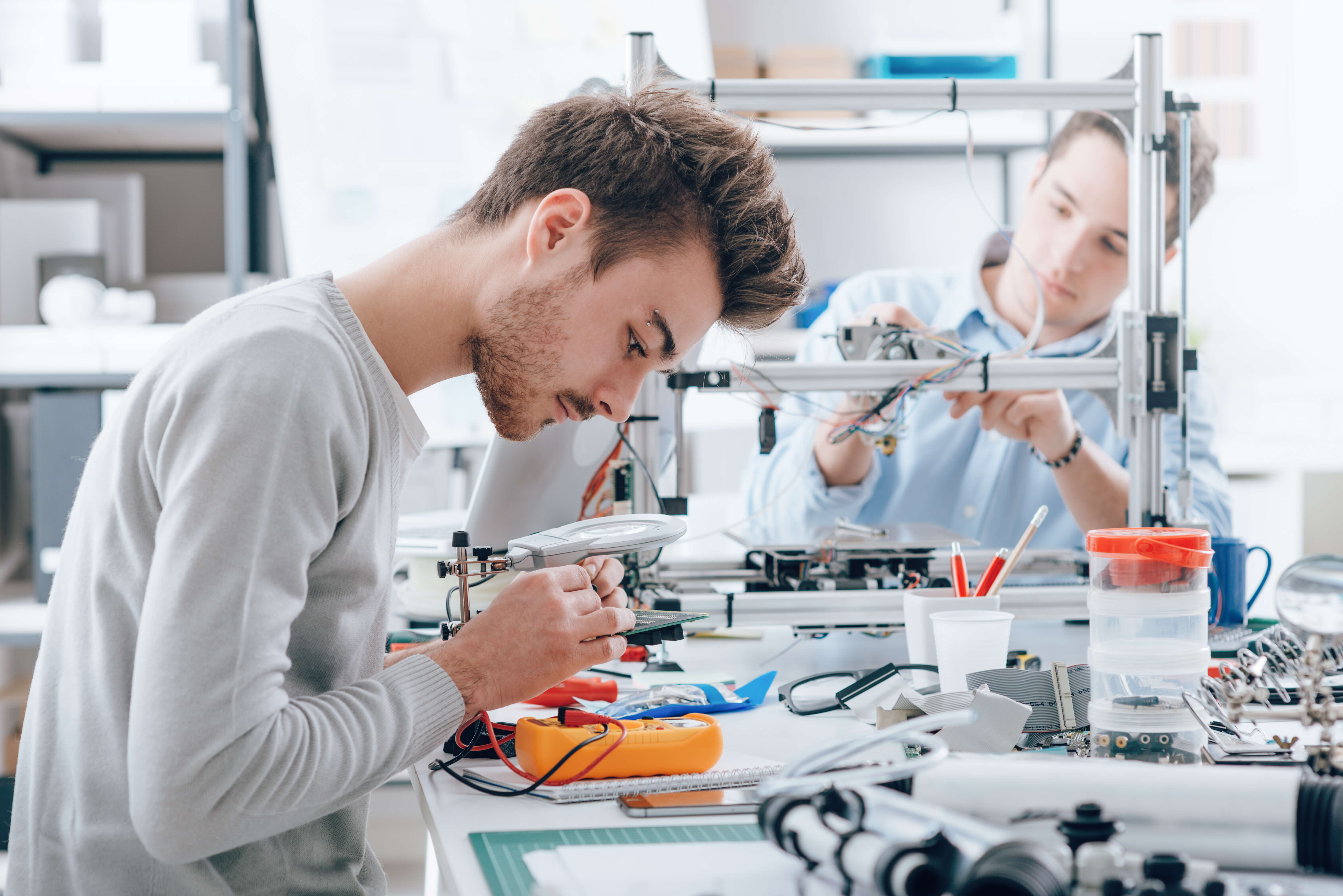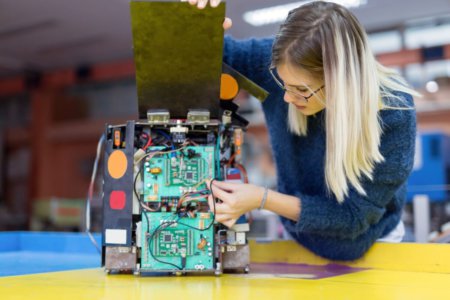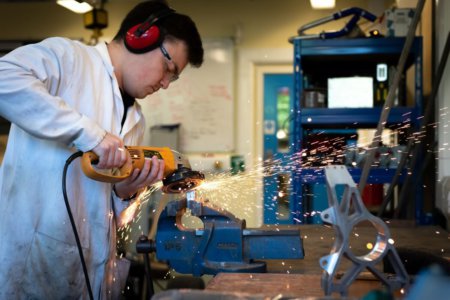Silverstone is the home of the British Grand Prix, one of the signature circuits of Formula One where greats like Michael Schumacher and Lewis Hamilton have raced to victory. It was also a laboratory for University of Sussex’s MEng Electrical and Electronic Engineering student Sarah Solomon.
Every year, Sussex engineering students from several different programmes join Formula Student, Europe’s most established educational motor sport competition. Over 100 university teams design and build the fastest, most efficient and most enduring single seat race car. Industry experts serve as judges in the race viewed by over 10,000 spectators and students from over 30 countries. For Sarah, this was an opportunity to work with industry bigwigs — such as university partners Ansys, EPLAN, RS Components and Allied Electronics — and mingle with the top students in this field. She walked away with more than just a once-in-a-lifetime experience. Multinational firm Thales offered her a placement as an electronics engineer.
Solomon’s story reflects the archetypal Sussex engineering education: contemporary, hands-on, research-driven, detail-oriented and ambitious. The university has one of the few general engineering departments in the UK, with degrees in electrical and electronic engineering, automotive and mechanical engineering, robotics engineering and product design. Programmes offered include: Electrical and Electronic Engineering (BEng and MEng), Electrical and Electronic Engineering with Robotics, (BEng and MEng), Mechanical Engineering with Robotics (BEng and MEng), MSc 5G Mobile Communications and Intelligent Embedded Systems, MSc Advanced Electronic and Electrical Engineering, and MSc Robotics and Autonomous Systems. They are accredited by various professional bodies and take place in continuously modernised electrical, electronics and robotics laboratories — in 2021, it is adding over 100 square metres of teaching laboratory space dedicated to these disciplines.
All of this is put to life-saving endeavours at Sussex, one research project at a time. Lecturer in Opto-electronics and Bio-engineering Drs Elizabeth Rendon Morales Senior Lecturer in Electronics and Rodrigo Aviles-Espinosa Lecturer in Optoelectronics together with their team have pioneered a stress-free way to listen to an unborn baby’s heartbeat, taking a 1970s silver chloride technology into the future. Using a non-invasive portable monitor, pregnant mothers could monitor their unborn child’s heartbeat at home in the future. It’s designed to detect heart-related congenital disorders too. “The electrode that you use traditionally, you could only use them for a certain period because those gel will dry out,” explains Aviles-Espinosa. “The technology that we have developed is just pure contact technology where you just need to put the sensor in close proximity with the maternal abdomen without any skin preparation and without any skin fluid.”
The next step is to miniaturise the technology for use on a smartphone. “This information will be sent wirelessly to a hospital so the doctor can make decisions about the baby,” Dr. Elizabeth Rendon-Morales. “If there is a situation where the baby needs to be delivered because the heart rate drops, the doctors can trigger an alarm and call the mother to go to the hospital.”
Their colleague, sensor technology researcher Prof. Daniel Roggen, is harnessing the strong potential of wearable technologies to prevent diseases. By providing “just-in-time cueing,” they will be able to help us better manage our health and make healthier choices by reminding us to take a pill or see a doctor. People with specific conditions such as dementia, or Parkinson’s stand to benefit, in particular. “My research builds on the advances in microelectronics, which is what allows wearables to be each year smaller and smarter,” Roggen explains. “Without microelectronics, I wouldn’t be able to be active in the field of wearable technologies.”
These projects, and many others have the potential to change the way we live, work and play — but the most important impact, educators say, is how it inspires and moulds today’s engineering students to become tomorrow’s engineering leaders. The Department of Engineering and Design is ranked 151-175 in the world in the latest Times Higher Education ranking for 2021, coming in at 32nd globally for citations. This placed it at joint 17th position in the UK and second for citations. It is also ranked 17th in the world and third in the UK for international outlook. Osama Ashraf, a BEng Electrical and Electronic Engineering student from Pakistan, was drawn to Sussex for these rankings, but it’s Sussex’s tutors who have convinced him this is the right place to continue with his master’s degree. “Our tutors were really helpful and whenever we had a problem, they were always there to answer all questions.”
Follow the School of Engineering and Informatics on Facebook and Twitter












